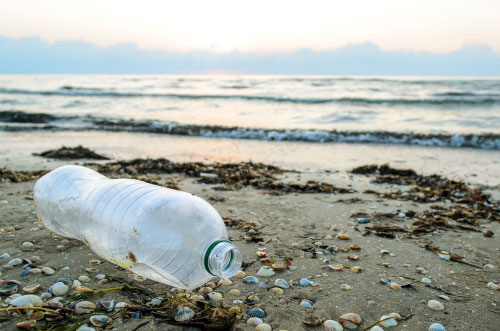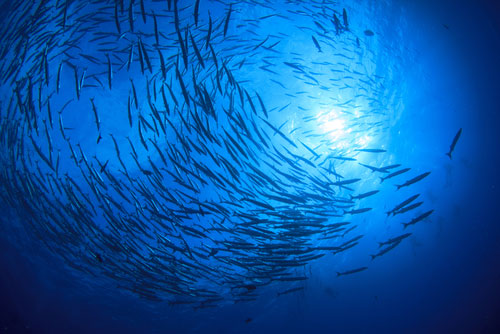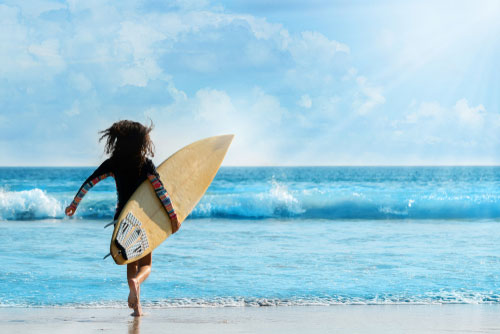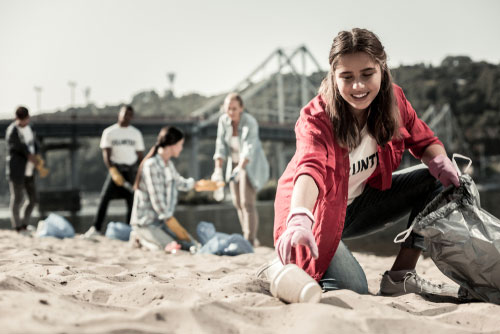The oceans need our protection. From finding the causes that worry us the most to plastic and choosing sustainable food: there are 8 tips we’d like to share with you on how we can protect our oceans.
The Basic Kit For Ocean Protection Advocates
Are you’re thinking about doing something regarding the ocean problems and commitment to help protect them? That’s cool because that’s why we’re here too. It all starts with 5 simple actions – follow me:
1 – Find Your Ocean Purpose
Smoothly hearing the ocean’s call for help is for sure a common feeling among the readers of this piece. And yes, oceans are likely crying salty tears as they need human action and protection. So advice number one is to learn more on oceans and figure out what ocean-related cause calls you louder. Is it endangered animals that are dying in coastal areas due to (micro) plastic in their stomachs? Or do you feel more touched by dying reefs due to attached boat anchors and excessive tourism? Or perhaps worries you the most is ocean acidification and its impact on plankton and biodiversity?
Read more books. Listen to more podcasts. Watch more videos and movies. And ultimately, you’ll understand what issue(s) move you the most. Then you can create awareness on these issues within your circles, supporting organizations working on solving them or other actions we’ll cover just now.
2 – Taking Plastic Home: You May Say I’m A Plastic, But I’m Not The Only One

Plastic has a huge family. More precisely, it is part of a community of 8300 million tonnes of cumulative production of polymers, synthetic fibers and additives, born between 1950 and 2015. The problem is huge. For instance, what we see as packaging, whales, dolphins or fish perceive as food. So they’re eating it. And you know – humans eat fish, just like birds. So plastic is also coming back to us and spreading to food chains in other ecosystems. So the next time you go to the beach, bring 3 plastic pieces you can find and recycle them. Or if recycling is not available, just take them home – but just take it away from the water, please.
3 – Avoid Plastic Pollution At Its Origin
Again – most plastic comes from packaging. So here’s something we need to act on: plastic packaging. In order to limit your impact, you can carry a reusable-filtering water bottle and avoid buying new ones. You can avoid industrial cookies and cakes (which have, by the way, plenty of non-certified damaging palm oil) by cooking healthier food at home and storing it in your own glass containers. Go to zero waste clothes and buy dried legumes without packaging: healthier, tastier, with no packaging (it requires more meals planning though). Buy clothes with less synthetic fibers get that don’t get to the oceans via your washing machine. Overall idea: try to take less plastic home and grow a consumption model that’s not based on disposable packaging.
4 – Choose Your Seafood Wisely (And Sustainably)

As you might already know, global fish stocks are quickly becoming depleted. This is happening as we, humans, demand too much fish (often from the same species), fish unsustainably (using unsustainable techniques that catch smaller fish which are the base of the fish food chain) or destroy their habitats with constructions or boat anchoring and pollution.
So the next time you go shopping or eat out, remember you can choose to reduce the demand for exploited species. You can do so by picking up seafood that’s not endangered, was fished sustainably and nearby. Look up for the Marine Stewardship Council (MSC) and Aquaculture Stewardship Council (ASC) labels – they’re the equivalent to the FSC for PEFC for wood and ensure your fish comes from a fishery or farm managed sustainabled.
5 – Use Public Transportation And Stop Carbon And Greenhouse Gases
Have you heard about ocean acidification? Simply put, the oceans’ pH is declining due to the excessive absorption of greenhouse gases, leaving them more acidic. This affects the ability of plankton (the food base of marine ecosystems) to renew, corals have a harder time developing their calcareous structures and interferes with marine life and changes its migrations. So the challenge is to reduce your carbon footprint. Drive less, it less meat, commute to work, encourage solar panels in your neighborhood, switch the plane for the train, reduce your overall consumption… By reducing our carbon footprint you’ll be indirectly adding less co2 in the atmosphere and not contributing to ocean acidification.
- Related:
The Advanced Kit For Ocean Protection Advocates
Nice, you’re still here! That means you’re considering taking the game to the next level – we thank you, and so do turtles, plankton and other ocean creatures. Moving on… we saved 2 last PRO tips for you.
6 – Use Your Job To Make A Change

Marine biology helps see how animals are being affected. Geography may help fight erosion by selecting the best places to build water jetties. Knowledge about fishing means knowing what species are endangered and what is the best method and place not to fish them. Art can help raise awareness through movies, paintings or music. Empowering social change through aquatic sports like Onda Verde does with surfing. Ships and cruises sailing in the most sustainable way. Sewage treatment that doesn’t harm marine ecosystems. Cosmetics without microplastics. There’s a lot of activities and areas directly connected to the ocean where people can make a difference and get their hands dirty if their jobs happen to be within organizations able to have these kinds of impacts.
7 – Help Local And Global Organizations Focused On Ocean Protection
If even you can help protect the ocean through some of the activities mentioned above, the truth is that there are some truly urgent matters and some actions can have a broader, stronger and faster effect than others. That’s why it’s so important if you can join forces with local and/or global organizations (often NGOs) focused on tackling the most imminent and worrying issues regarding ocean protection.
There’s likely a WWF or a Surfrider Foundation office around the corner, together with other local, smaller but maybe more focused on specific issues, organizations, committed to fighting plastic straws or protect turtles or reefs. Volunteering and helping them out, either with your time and energy or financially speaking, is surely important.
8 – Organize A Beach Clean Up Yourself

Why not take the lead for time to time? If you’re living close to the ocean why not organize a beach clean up with some friends, family and the community? Find a day when the weather is good and people are available, pick a beach in need where these actions don’t usually take place, use the power of social media platforms to increase your reach and give it a go. Oh and remember: take some pictures to share afterward and encourage others to join you next time!
Image credits to sea on Shutterstock, pollution on Shutterstock, water on Shutterstock, fish on Shutterstock, plastic on Shutterstock and cups on Shutterstock

